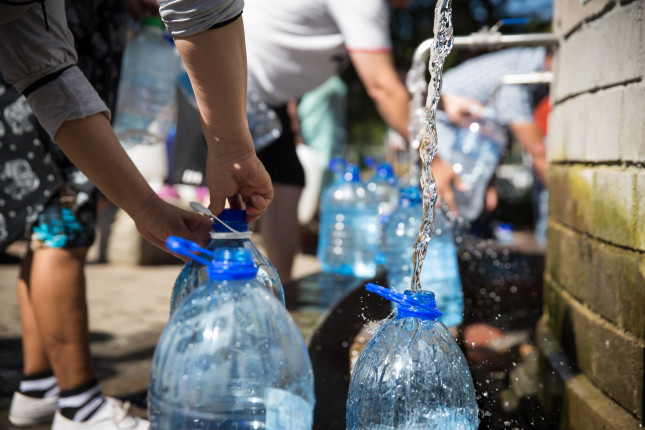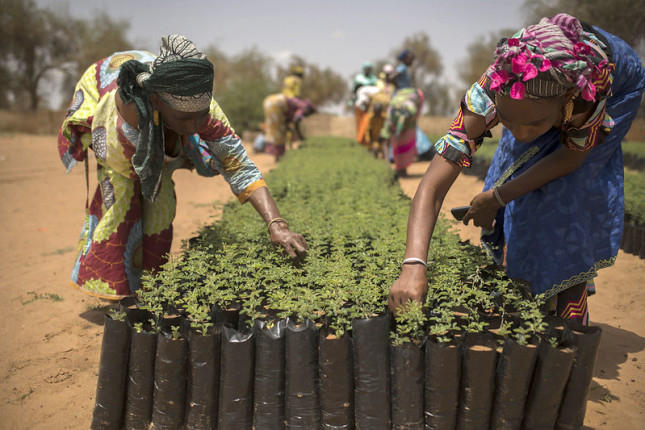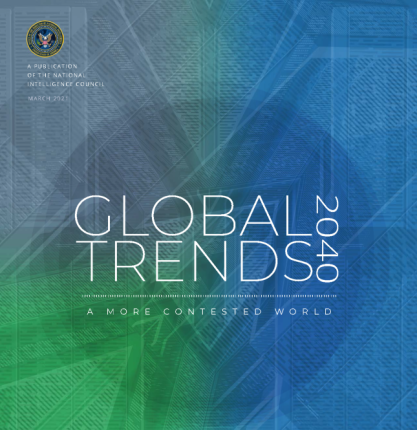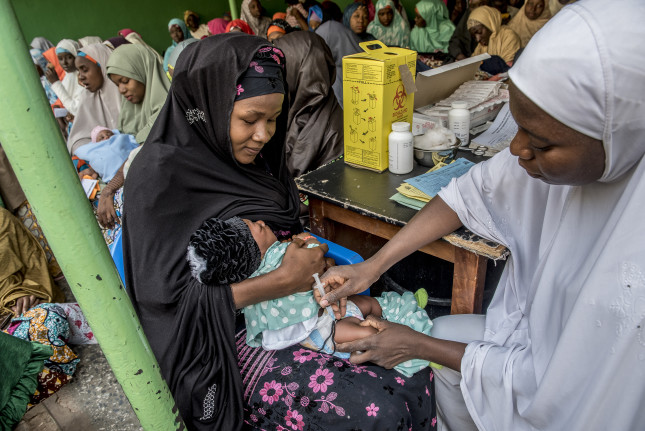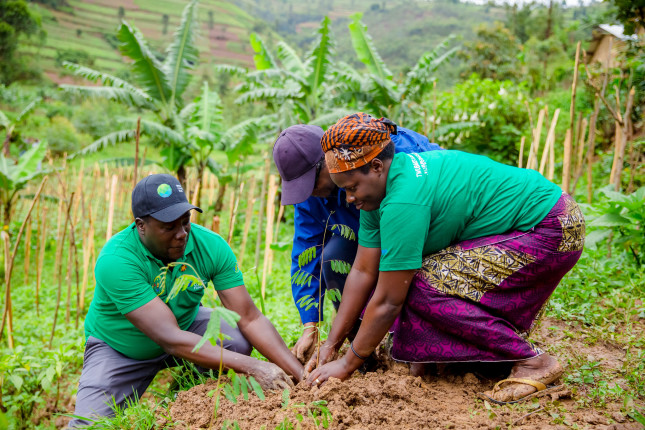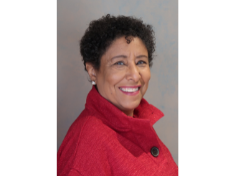-
Indonesia is Facing a Plastic Waste Emergency
›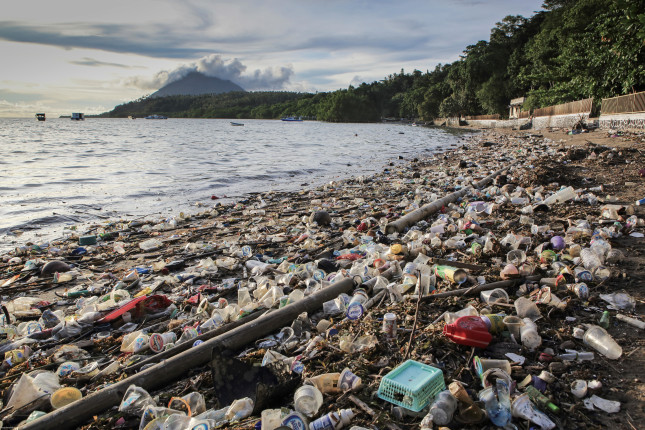
Attempts to reduce the amount of waste flowing into the ocean from Indonesia are having limited success.
-
Beyond Pride: Ensuring Affirming, Respectful Sexual and Reproductive Healthcare for LGBTQ+ Communities
›
In June 1969, the Stonewall Uprising in Manhattan served as a critical tipping point for the Gay Liberation Movement in the United States. Each June, communities around the world celebrate Pride Month to honor this struggle and continue fighting for a more equal future. More than 50 years after Stonewall, Lesbian, Gay, Bisexual, Transgender, and Queer or Questioning (LGBTQ+)* people in the United States struggle to access culturally competent and respectful sexual and reproductive health care.
-
Will COVID-19 Accelerate Urban Water Security or Insecurity?
›
“Never let a good crisis go to waste,” said Winston Churchill. Like other acute stressors, the COVID-19 pandemic acts as a multiplier of chronic or pre-existing vulnerabilities, such as the challenges of servicing rapidly growing informal populations, particularly in urban settings. This multiplier effect may accelerate water insecurity at unprecedented levels. However, together with UNESCO Intergovernmental Hydrological Program (IHP), we’re reflecting on the possibility that COVID-19 can act as an accelerator of positive action toward achieving Sustainable Development Goal 6 on water. The nexus between issues and urban water security is particularly important.
-
A Conflict Prevention Agenda Should Inform Climate Change Actions in Africa
›
In Africa, climate change and population expansion are increasing fragilities and vulnerabilities—including contributing to conflict dynamics—for many people who directly depend on nature. To cope with how their environment can no longer supply livelihood needs, people are migrating in search of security or economic stability. These factors interact with one another in ways that underline the need for inclusive conflict mitigation considerations in climate change action.
-
The NIC’s Global Trends 2040 Report: A Development Outlook
›
The recently released National Intelligence Council’s Global Trends 2040 report, clocking in at over 140 pages, is titled “A More Contested World.” That headline should come as no surprise to development professionals. The report, reviewed by the incoming Director of National Intelligence Avril Haines, before being sent to President Biden and Congress, examines key trends that will likely influence U.S. national security out to 2040. I blogged on the Global Trends Report back in 2015, when it was on the verge of being unveiled at the splashy South-by-Southwest (SXSW) festival in Austin. This year’s public release was much more muted and the overall outlook decidedly more bleak, chaotic, and turbulent, not just from the lingering fallout of a “long tail” COVID-19 pandemic, but from the ominous environmental consequences of climate change on everything from glaciers and rising sea levels, to more frequent and intense tropical storms, and an unprecedented numbers of wildfires, like those seen last year in the Western United States. The NIC report also speaks to the ominous societal changes coming our way, best characterized by a widening chasm between what governments can reliably deliver and what citizens can reasonably expect.
-
Vaccines, Family Planning, and Freedom from Violence: Achieving Equity for All Women and Children
›
“From birth, from almost from cradle to grave, girls have been seen as some sort of baggage,” said Shamsa Suleiman, Project Management Specialist for Gender and Youth at the U.S. Agency for International Development (USAID), Tanzania. Suleiman spoke at a recent Wilson Center event with USAID MOMENTUM Country and Global Leadership about balancing power dynamics to achieve equity for all women and children in maternal, child, and adolescent health, and family planning. Home should be a safe space, said Suleiman. But for many girls, it no longer is. To escape the poverty and pressures at home, including early marriage and other forms of gender-based violence, some girls leave, said Suleiman. “Girls are trying to escape the safe spaces.”
-
Raising Ambition: The Role of the Green Climate Fund in Building Capacity and Catalyzing Investment
›
Coordinating international financing for climate adaptation and mitigation remains a persistent challenge. In its 2020 Adaptation Gap Report, the United Nations Environment Programme observes that the annual cost of climate adaptation in developing countries could rise from $70 billion today to $280-500 billion by 2050—and current funding levels are growing at too modest a pace to keep up.
-
A Conversation with Dr. Nahid Toubia: Bodily Autonomy and the 2021 State of World Population Report
›Africa in Transition // Dot-Mom // Friday Podcasts // May 28, 2021 // By Hannah Chosid & Deekshita Ramanarayanan Bodily autonomy is something almost innate in us, and yet also a Eureka moment for many people, says Dr. Nahid Toubia, Director for the Institute of Reproductive Health and Rights in Sudan on this week’s episode of Friday Podcasts. “Every human being really has the right to own their body, to own their decisions, to own their choices regarding their life, their futures, how they want to live, who they want to partner, whether they want to have children or not, what kind of families they want to have,” she says. “So, all of these choices are all wrapped up in this concept of body autonomy.”
Bodily autonomy is something almost innate in us, and yet also a Eureka moment for many people, says Dr. Nahid Toubia, Director for the Institute of Reproductive Health and Rights in Sudan on this week’s episode of Friday Podcasts. “Every human being really has the right to own their body, to own their decisions, to own their choices regarding their life, their futures, how they want to live, who they want to partner, whether they want to have children or not, what kind of families they want to have,” she says. “So, all of these choices are all wrapped up in this concept of body autonomy.”
Showing posts from category *Main.



